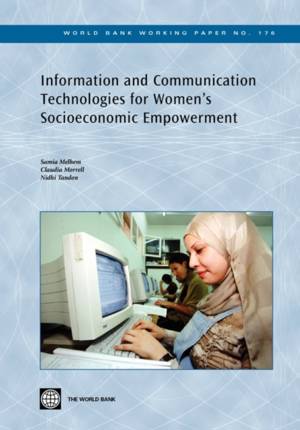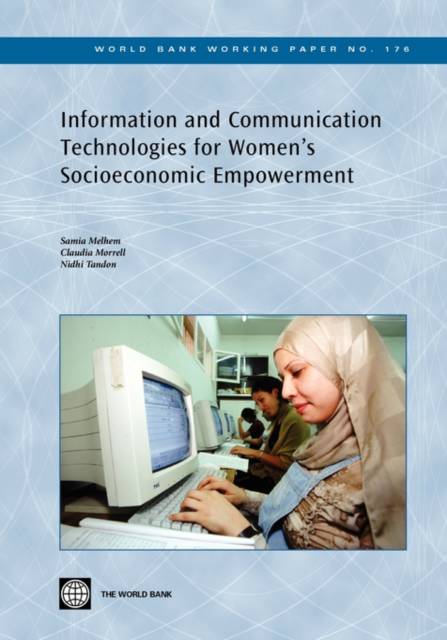
Bedankt voor het vertrouwen het afgelopen jaar! Om jou te bedanken bieden we GRATIS verzending (in België) aan op alles gedurende de hele maand januari.
- Afhalen na 1 uur in een winkel met voorraad
- In januari gratis thuislevering in België
- Ruim aanbod met 7 miljoen producten
Bedankt voor het vertrouwen het afgelopen jaar! Om jou te bedanken bieden we GRATIS verzending (in België) aan op alles gedurende de hele maand januari.
- Afhalen na 1 uur in een winkel met voorraad
- In januari gratis thuislevering in België
- Ruim aanbod met 7 miljoen producten
Zoeken
Information and Communication Technologies for Women's Socioeconomic Empowerment
Volume 176
Samia Melhem, Claudia Morrell, Nidhi Tandon
€ 33,95
+ 67 punten
Omschrijving
This paper reviews how women in the developing world access and use information and communication technology (ICT). It examines the discourse and controversies surrounding the digital gender divide, including links to poverty and illiteracy. Major themes concerning women and ICTs are explored, such as women in the ICT workforce, how girls and women relate differently to ICT, and opportunities and barriers for women in science and technology in general. Current research relating to gender and ICT is often country-specific and is more prevalent in developed countries than in developing countries. This paper suggests where additional research is needed on barriers to women's entry and access to ICT. The overall objective of this paper is to influence policy dialogue around women and ICT for development by raising awareness of the digital gender divide. Economic opportunity for women in ICT will not be realized until policies address gender considerations and ensure that ICT investment contributes to more sustainable and equitable development.
Specificaties
Betrokkenen
- Auteur(s):
- Uitgeverij:
Inhoud
- Aantal bladzijden:
- 96
- Taal:
- Engels
- Reeks:
- Reeksnummer:
- nr. 176
Eigenschappen
- Productcode (EAN):
- 9780821381335
- Verschijningsdatum:
- 2/10/2009
- Uitvoering:
- Paperback
- Formaat:
- Trade paperback (VS)
- Afmetingen:
- 178 mm x 254 mm
- Gewicht:
- 185 g

Alleen bij Standaard Boekhandel
+ 67 punten op je klantenkaart van Standaard Boekhandel
Beoordelingen
We publiceren alleen reviews die voldoen aan de voorwaarden voor reviews. Bekijk onze voorwaarden voor reviews.









